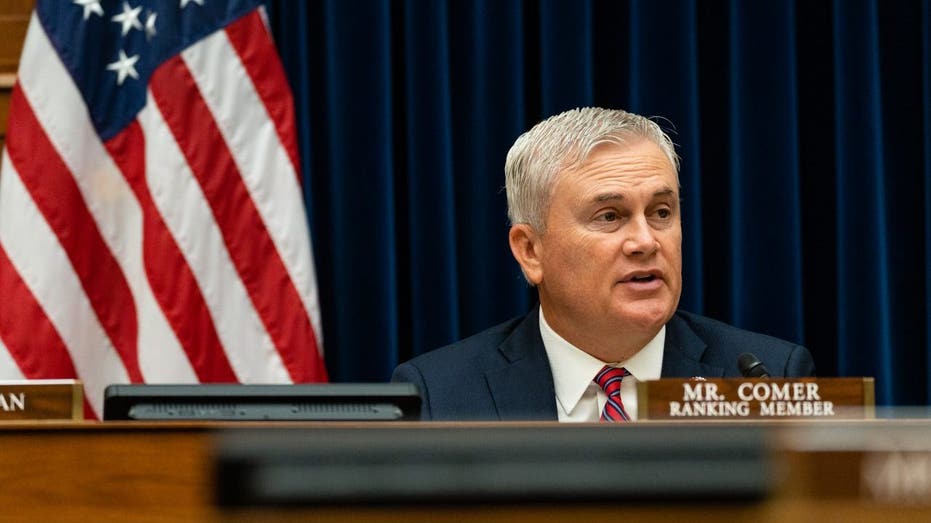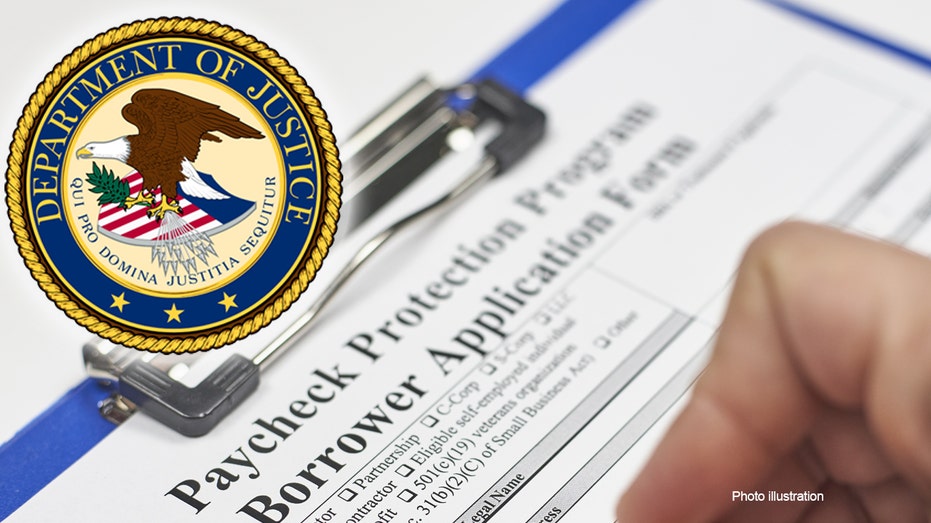Billions of dollars in COVID aid fraud to be focus of House hearing
Fraud included 'N-95 mask non-delivery schemes' and 'prison inmates applying for unemployment benefits'
Ernst: We need to fire these fraudsters
Sen. Joni Ernst, R-Iowa, joins "Kudlow" and discusses government employees who filed for unemployment benefits while receiving a government paycheck.
Lawmakers on the House Oversight and Accountability Committee are set to examine the loss of taxpayer dollars to fraud in the federal government's $5 trillion of COVID-19 pandemic relief spending in the panel's first hearing of the new Congress on Wednesday morning.
"We must identify where this money went, how much ended up in the hands of fraudsters or ineligible participants, and what should be done to ensure it never happens again," Chairman James Comer, R-Ky., said in an advance copy of his opening remarks for the hearing. "This committee will evaluate the hundreds of billions of dollars of grants and loans doled from nearly every agency in the federal government, to ensure those funds were appropriately used to respond to the pandemic, and not wasted on ineligible payees or unrelated matters."
In response to the COVID-19 pandemic, Congress approved more than $5 trillion in funding for a variety of relief measures, ranging from stimulus checks to individuals, grants to small businesses under the Paycheck Protection Program (PPP) and Economic Injury Disaster Loans (EIDL), enhanced unemployment benefits, payouts to state and local governments, and more. The programs were intended to help Americans keep businesses open and individuals in their homes while giving health care providers and schools tools to deal with the impact of the pandemic.

Rep. James Comer, R-Ky., ranking member of the House Oversight Committee, speaks during a hearing in Washington, D.C., on July 27, 2022. (Eric Lee / Bloomberg via Getty Images / Getty Images)
While those programs helped stabilize the U.S. economy during the depths of the crisis, the volume of spending gave fraudsters an opportunity to cash in. Comer called the misappropriation of pandemic relief funds "the greatest theft of American taxpayer dollars in history" and said the committee will hold "many more hearings on this important issue."
To put the scale of the roughly $5 trillion in pandemic relief spending into context, that amount exceeds all of what the federal government spent in 2019 – including discretionary spending, mandatory spending on programs such as Social Security and Medicare, and interest on the national debt.
FLORIDA MAN WHO BOUGHT MANSION, MASERATI USING COVID FUNDS SENTENCED TO PRISON
Federal agencies tasked with doling out the funds lacked the bureaucratic infrastructure necessary to oversee all that new spending in addition to their typical oversight duties, so Congress created the Pandemic Response Accountability Committee (PRAC) as part of the Coronavirus Aid, Relief, and Economic Security (CARES) Act to provide independent oversight.
Department of Justice (DOJ) Inspector General Michael Horowitz was tapped to chair the PRAC, which is composed of inspectors general from various federal agencies and Congress provided it with $120 million over five years to bring on staff needed to carry out its operational mandate.
In his prepared remarks ahead of Wednesday's hearing, Horowitz noted that data scientists with PRAC's Pandemic Analytics Center of Excellence (PACE) this week flagged the use of more than 69,000 questionable Social Security Numbers (SSNs) to secure $5.4 billion in pandemic relief loans plus another 175,000 dubious SSNs used in applications that weren't approved.
COVID RELIEF FRAUD NEARS $100B, SECRET SERVICE SAYS

Unemployment fraud in the U.S. reached dramatic levels during the pandemic: more than $63 billion was paid out improperly through fraud or errors since March 2020. (AP Photo / J. Scott Applewhite / File) (AP Newsroom)
Horowitz's prepared opening statement also asked Congress to amend a federal law to increase the dollar limit for agencies to recover "smaller" false or fraudulent claims from $150,000 to $1 million and enable PRAC to have jurisdiction over those awards. He noted, "To date, the PRAC is aware of at least over one million pandemic awards, totaling about $362 billion, that ranged from $150,000 to $1,000,000. While the scope of the fraud for these 'smaller' awards has not yet been fully determined, increasing the jurisdictional amount would ensure that we could pursue them."
"My colleagues and I have seen and countered the full spectrum of pandemic-related fraud to date," said David Smith, the assistant director of the Secret Service's Office of Investigations, in his prepared remarks. "From N-95 mask non-delivery schemes to synthetic accounts used in identity theft scams to apply for millions of dollars in loans. From medical facilities targeted with ransomware attacks at the height of the pandemic to prison inmates applying for unemployment benefits."

Paycheck Protection Program (PPP) borrower application form (iStock / iStock)
Smith said the "volume of fraudulent activity related to CARES Act funding was and is substantial" and has been similar to other efforts by scammers to defraud natural disaster relief programs. The Secret Service's Cyber Fraud Task Forces have assisted in securing about $3 billion in fraudulent unemployment benefits and seized more than $1 billion in EIDL funding.
Gene Dodaro, the comptroller general of the Government Accountability Office (GAO), will also testify at Wednesday's hearing and noted in his opening statement that fraud in unemployment insurance (UI) programs during the pandemic "is at least $4.3 billion," but that figure "does not account for potential fraud that has not been formally determined as such." He went on to explain that the Labor Department has estimated that "at least $163 billion in pandemic UI benefits could have been paid improperly."
Dodaro also noted that the GAO found that "agencies did not consistently apply leading practices to manage fraud risks in COVID-19 spending, including designating dedicated antifraud entities, assessing fraud risks, or developing antifraud strategies." The PPP and EIDL programs, enhanced unemployment insurance and the FCC's Affordable Connectivity Program all failed to do so, according to GAO's analysis.
GET FOX BUSINESS ON THE GO BY CLICKING HERE
As of Jan. 13, 2023, at least 779 individuals or entities have pleaded guilty to, or been convicted of, charges stemming from efforts to defraud federal COVID-19 relief programs, per Dodaro's prepared documents for the hearing.
The House Oversight and Accountability Committee's hearing on "Federal Pandemic Spending: A Prescription for Waste, Fraud, and Abuse" will begin at 10 a.m. Eastern on Wednesday, Feb. 1. Horowitz, Smith and Dodaro are all scheduled to appear before the panel.




















